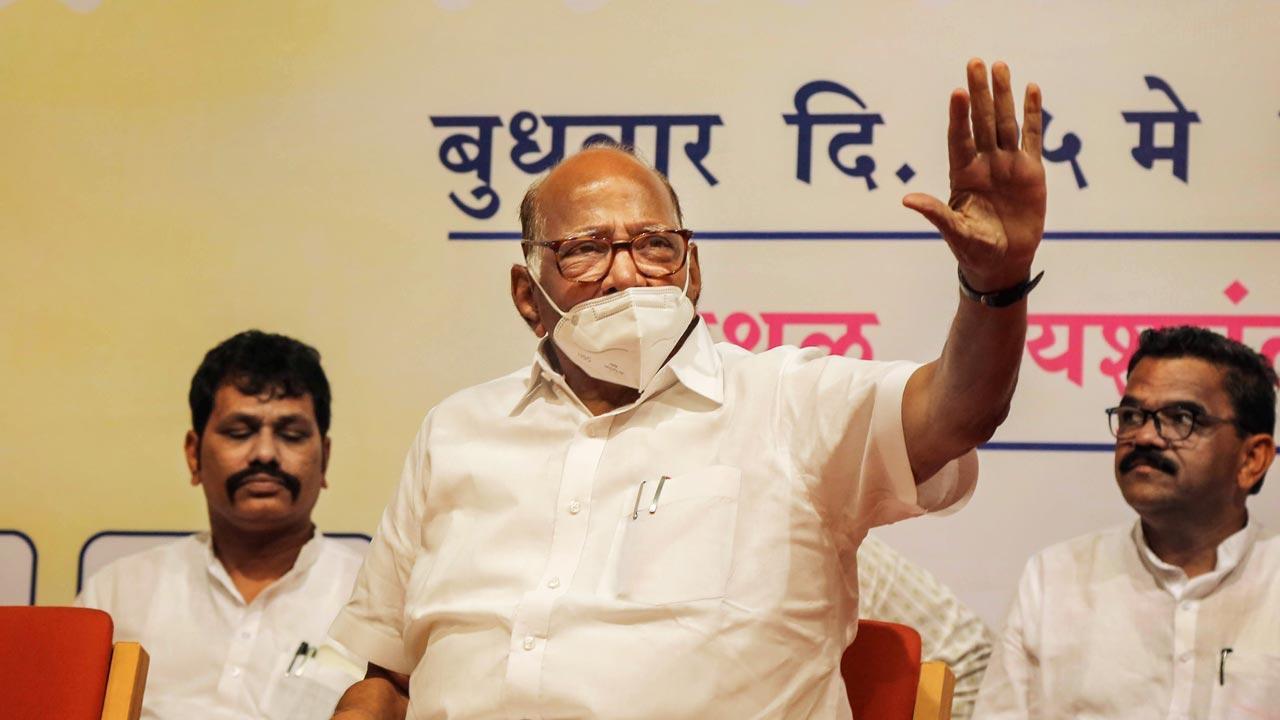Pawar was in the city on May 27 to inspect the tract of land adjoining Dagdusheth Ganpati temple amid a long-pending demand that the land be handed over to the temple trust

Sharad Pawar. Pic/PTI
NCP chief Sharad Pawar, who was to visit the famous Dagdusheth Ganpati temple here, took 'darshan' of the deity from outside the complex as he had eaten non-vegetarian food, the party's Pune unit president Prashant Jagtap has said.
ADVERTISEMENT
Pawar was in the city on Friday to inspect the tract of land adjoining Dagdusheth Ganpati temple amid a long-pending demand that the land be handed over to the temple trust. The land belongs to the state home department, which is currently headed by NCP leader Dilip Walse Patil.
As Pawar did not enter the temple premises and took darshan from outside, questions were raised about it. However, talking to reporters in the evening, Jagtap clarified about it. "He (Pawar) had planned to go to the temple. However, he preferred to take darshan from outside as he had eaten non-vegetarian food," Jagtap said. "Pawar saheb told me that as he had consumed non-vegetarian food earlier in the day so he felt that it was not appropriate to go inside the temple, and instead took darshan from outside," he added.
When Deputy Chief Minister and senior NCP leader Ajit Pawar, who was also in the city, was asked about it later, he said, "Why are such questions being asked? If he goes to take darshan, then questions are asked and if doesn't then he is tagged as an atheist." "Many times, people eat non-veg food, but don't tell others about it and go inside a temple to take darshan, while there are others who tell it openly. Darshan can be taken from outside the temple also. Due to the restrictions amid pandemic, people used to take darshan from the temple steps," he said.
This story has been sourced from a third party syndicated feed, agencies. Mid-day accepts no responsibility or liability for its dependability, trustworthiness, reliability and data of the text. Mid-day management/mid-day.com reserves the sole right to alter, delete or remove (without notice) the content in its absolute discretion for any reason whatsoever
 Subscribe today by clicking the link and stay updated with the latest news!" Click here!
Subscribe today by clicking the link and stay updated with the latest news!" Click here!







